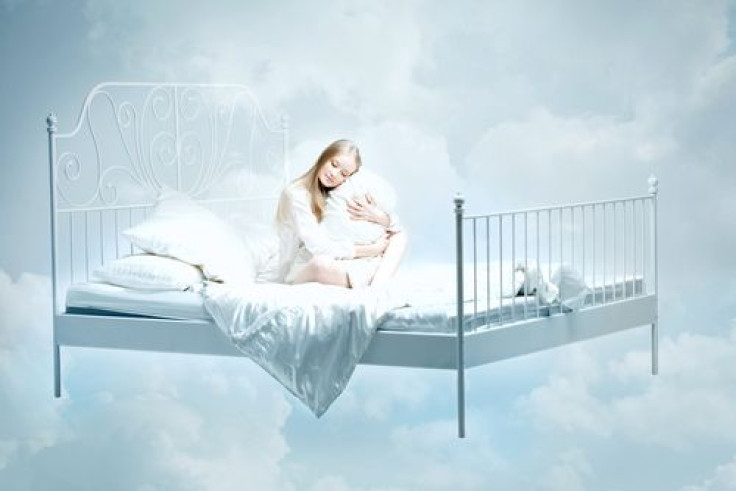Dream Interpretation Site Reveals Their Users' Most Popular Dreams; What Do New Yorkers Dream About The Most?

Flying, falling, and showing up to work naked aren’t the most popular dreams in the United States, but instead we’ve got babies on the brain. Researchers from the 2014 American DreamsCloud Index, examined the dreams of thousands of Americans and ranked the most popular types throughout the country.
"When it comes to what we're dreaming about, dreams often can't be taken literally," Jean-Marc Emden, the co-founder of DreamsCloud, told the NY Daily News. DreamsCloud is a site that provides dream interpretations, and according to Emden, the symbols in our dreams are supposed to be reflected upon and examined while we’re awake as to better understand ourselves. "For instance, dreams about babies and even sex may mean different things to different people based on their backgrounds and personal experience.
The company analyzed the dream content of 111,327 American adults from January to July 2014 for its study and then processed the data into sections. They found that 24 percent of Americans who sought help from the free online interpretation website were having dreams about babies and pregnancy. Dreaming about houses came in second at 22.3 percent, followed by classroom dreams, which took up nighttime space in 18.7 percent of American’s brains, and another 10.7 percent dreamt of water, and 8.5 percent dreamt of cars.
Researchers have been trying to figure out exactly what dreams mean for years, and while it’s still not entirely possible to make an accurate assessment on a person’s waking life based on their dreams, some nighttime horrors can provide perspective. Take the common teeth-falling-out dream, for instance. This dream is highly associated with stress experienced in the waking life and feeling like you have no control, which most frequently happened to New Yorkers. New Yorkers also had more people having dreams of sexual encounters, at a whopping 20 percent more than Florida citizens.
"The only way to really understand your dreams is to better track, analyze safe-keep and socialize each dream, identifying common patterns and using today's resources designed to aid in the self-reflection process," Emden said. "These help users discover patterns and receive insights that can impact how we carry ourselves in our waking lives — and ultimately, better our overall wellness."
Sigmund Freud’s theories about the meanings in dreams reared its controversial head in 1900, and ever since then researchers and the average sleeper have been trying to figure out what it all means. Freud was convinced dreams represented some unfulfilled desires, hopes, or wishes. Except it was theoretically disproved by investigators who later found them to be more of a reflection of a person’s waking life. It was proven by science earlier this year to have stronger roots in the status of our emotional stability, according to Time.
How many people actually put merit into what they’re dreaming every night? A valid question remains after all is said and dreamed: is the DreamsCloud study an accurate reflection of our dreams when a majority of the time we don’t remember them and the people actually reporting their dreams may be skewed gender or age-wise? Until there can be a more non-biased and professional examination on how, what, and why people dream certain things, data collection surveys stand on hollow findings. Dream on.



























